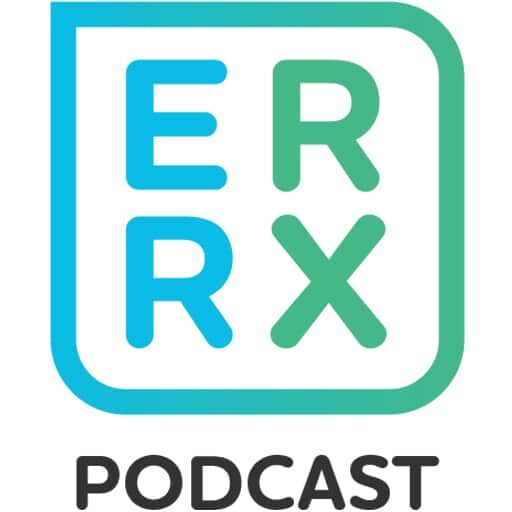Episode 8- Is glucagon effective for relieving esophageal foreign bodies/food impactions?
Episode Summary:
In this week’s episode, we discuss a recently-published meta-analysis and summarize a couple of guidelines that discuss the management of esophageal foreign bodies/ food boluses.
Show Notes:
Key Points:
“Glucagon for esophageal foreign bodies/food impactions“:
– Endoscopy is the definitive method of treatment, however some providers will opt to try glucagon first to relieve the impaction
– Meta-analyses and guidelines state that glucagon is as effective as placebo (~30% success rates) with more adverse drug events including vomiting, which can lead to perforation or aspiration
– Routine use of glucagon in this setting is not recommended. Can consider its use for distal esophageal impactions in facilities without readily-available endoscopic care
– Dosing is 0.5 – 1 mg IV with repeat dosing if desired
References:
Transcript:
Hello, and welcome to episode 8 of ER-Rx. In this pharmacy consult episode, we answer the question: Is glucagon effective for relieving esophageal foreign bodies and food impactions?
Esophageal foreign body impaction occurs when an object or food becomes stuck in the esophagus. This means that the patient will not be able to take anything orally, while at the same time putting the patient at risk of airway obstruction, esophageal perforation, and even necrosis. Although up to 80- 90% of objects pass spontaneously, up to 10-20% may require endoscopic removal. Endoscopy is the definitive method of evaluation and treatment. Food boluses can be simply pushed into the stomach with the endoscope or retrieved using forceps. However, sometimes medical therapy with glucagon is attempted first. Glucagon, typically given at a dose of 0.5-1 mg IV, is thought to reduce lower esophageal sphincter tone. Glucagon is commonly used by gastroenterologists for GI smooth muscle relaxation during endoscopic procedures and obviously is most known for its use to reverse hypoglycemia if dextrose is not readily available. Glucagon comes as a 1mg powder in a vial along with a 1 mL solvent.
To answer the question, let’s look at a systematic review snapshot published in February of 2020 in the Annals of Emergency Medicine. The meta-analysis that this article summarizes used a primary outcome definition of ‘success’ as subjective symptom relief or radiographic imaging confirmation of impaction resolution. Secondary outcomes included adverse drug events, vomiting, and time to impaction relief. A total of 5 studies and over 1,000 patients were included in the final analysis. Most studies used a 1 mg dose of glucagon with possible repeat dosing. Overall, treatment success did not differ between the control group and the glucagon group, with both having ~ 30% success rates. Adverse drug events occurred more frequently in the glucagon group (15%) versus 0% for the control group- – most commonly was vomiting and retching. Other adverse drug events included hypotension and lightheadedness. The authors concluded that glucagon does not seem to work better than placebo with the added insult of a higher rate of adverse drug events.
We also find similar answers when we turn to guidelines. Per the European Society of Gastrointestinal Endoscopy, medical treatment should not delay endoscopy. The authors state that the use of glucagon to ease the passage of the food bolus into the stomach has shown variable results with especially limited success in the setting of fixed anatomic obstructions. They note that food bolus impaction frequently are associated with esophageal abnormalities such as strictures, and here medical therapy will not be effective in most cases. They state that although success rates of glucagon are poor, it is still sometimes recommended by some providers as initial therapy for esophageal food bolus impaction because of its safety and ‘limited side effect profile’. Strangely, they do mention that glucagon is associated with nausea and vomiting that could potentially increase the risk of perforation and aspiration; doesn’t sound like a good idea to me personally.
Since food impaction occurs commonly in children, we turn to the guidelines published by the European and North American Societies for Pediatric Gastroenterology, Hepatology, and Nutrition. When discussing esophageal food, coin, and other blunt object impactions, they state that using glucagon to lower esophageal sphincter tone to hasten spontaneous resolution is not recommended in this setting. They do state that its use may be considered in patients with distal esophageal impactions or in facilities where endoscopic care is not readily available; but they stress that the administration of glucagon should NOT delay endoscopic management if it is available.
Taken together, we see that glucagon is usually ineffective for relieving esophageal foreign bodies and food impactions. This statement has been verified in meta-analyses and is echoed in both national and international guidelines. In settings without endoscopic care, it is reasonable to try a dose of 0.5-1 mg IV, keeping in mind the patient may develop nausea, vomiting, or hypo- or hypertension, so patient monitoring for 30-60 minutes is not a bad idea.
As always, thank you so much for your time. Please don’t forget to check out our website at errxpodcast.com, there you can see a list of all of our past episodes, check out our show notes, look at our references, and read a full transcript of each episode.
